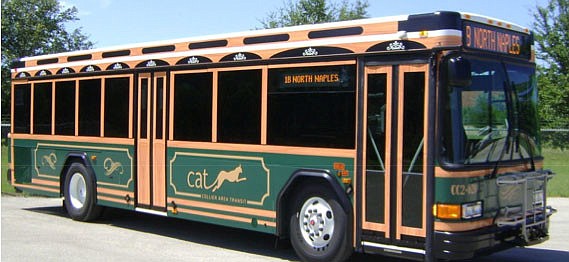- April 18, 2024
-
-
Loading

Loading

Glama Carter has a tough road ahead as the newly hired Sarasota County transit general manager.
An audit from Clerk of the Circuit Court Karen Rushing exposed financial risk in parts of Carter’s department, and 44 buses she oversees have reached the end of their serviceable life.
Carter will present options during a Dec. 11 County Commission meeting for replacing 17 buses of the fleet this fiscal year, with $6.65 million earmarked for new purchases from Gillig LLC.
Carter will recommend modifications to five of the buses to make them look like trolleys. Those buses would be designated to service the county’s barrier islands, including Siesta Key.
To give commissioners fiscal flexibility, Carter will offer the choice of hybrid versus clean diesel buses and two alternatives for the trolley alterations.
County staff prefers the $6,100 per bus to wrap each of the new buses in a film that resembles a trolley exterior instead of buying the trolley package, which would cost about $68,000 per bus, Carter said.
When she was transit manager for Collier County, Carter used buses with the wrapping option, which she said was met with a positive public response.
“We wanted to have the atmosphere of a trolley to match the atmosphere of Naples,” Carter said during a Dec. 5 phone interview.
The presentation on the County Commission’s agenda includes a picture of a Collier Area Transit “trolley.” Carter said the colors for SCAT’s undercover buses would be chosen after commissioners decide on the purchase.
Staff will also recommend commissioners buy all clean diesel buses, which are $200,000 cheaper than hybrid options, and are more fuel-efficient on longer routes with fewer stops, according to Carter’s report.
If commissioners approve the agreement with Gillig, production will take about one year and will be a step toward creating an optimum fleet of 55 clean diesel and 18 hybrid buses, according to Carter’s report.